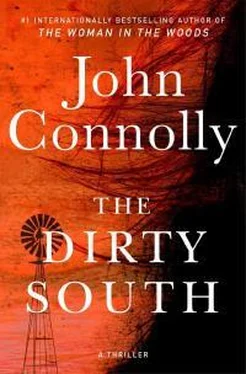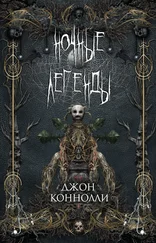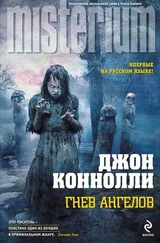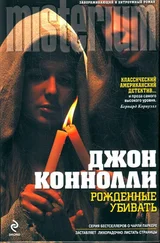Parker didn’t bother hiding his puzzlement. In the context of what Griffin had told him about the placement of Donna Lee Kernigan’s body – and what he knew about the murder of Estella Jackson, in the event that she had been murdered by the same individual – it made no sense for the killer to have dumped Patricia Hartley so carelessly.
‘What am I not seeing?’ he asked.
‘You can’t see what you don’t know to see,’ said Griffin. ‘Where you’re standing is federal land. Down there is private property, owned by the Ingram family. The edge here marks the boundary.’
Parker took in the woods, both around and below, and the distant hills. He was moderating his opinion of Griffin and the Cargill PD by the minute, because the odds had been stacked against them from the start. He squatted, and noted that the ground inclined slightly as it reached the edge, but he detected no sign of any collapses. Patricia Hartley’s body could only have been pushed over the edge intentionally.
Unless …
‘Any indications of animal damage?’
‘None,’ said Griffin. ‘We have black bears, and they’d certainly be capable of moving a body, but they’d chew on it first. Patricia had been dead for less than a day when she was found; to a predator, her meat would still have been considered fresh. Bears don’t go in much for rotten meat, not unless they’re starving. Had an animal been involved, we’d know about it.’
‘So your opinion is that someone moved Patricia Hartley’s body so it wouldn’t be discovered on federal land, because that would have meant involving the FBI?’
‘It is.’
‘You have anyone in mind?’
‘Patricia was found by a woman named Wadena Ott. She’s lived a harder life than many, and gets by on food stamps, whatever she can catch in her traps, and bottles of seventy proof cherry brandy. Like a lot of folk barely holding it together, she has a fear of the law, but everyone tries to be as understanding of her needs as they can, including the sheriff’s office. She called them as soon as she got home. Jurel Cade was first on the scene.’
‘Do you know that for sure?’
‘He told me so himself.’
‘And what does Wadena Ott have to say about all this?’
‘Whatever Jurel told her to say, which is that she found the body at the bottom of the slope, not the top.’
Parker envisioned Jurel Cade, his foot against the naked body of Patricia Hartley, using the sole of his shoe to give her one final push over the edge.
Where have I come to? What manner of place is this?
He took a small notebook from his pocket and added Wadena Ott’s name to it. Rain speckled the page. He discerned smoke rising in the distance from a fire that was either being smothered by the rain or refusing to yield to it.
‘Tell me about the Cades.’
Griffin did, giving him a truncated family history, but concentrating principally on those that remained, namely Pappy and his brood: Delphia, Jurel, and Nealus. Parker listened without interrupting, all the while regarding the woods; the rocky slope that had damaged Patricia Hartley’s body still further, inflicting injury upon injury; and the Karagol standing like a great pool of tar to the east of his vantage point. If this was the Cades’ kingdom, they could have it.
‘So,’ said Griffin, when his monologue was concluded, ‘what do you think?’
‘I’m wondering,’ said Parker, ‘if anyone in this county has a regular first name.’
‘You’re named after a jazz musician.’
‘No, I’m not.’
‘You’re telling me it’s a coincidence?’
‘My parents didn’t listen to jazz,’ said Parker. ‘The name came from elsewhere. My grandfather didn’t leave a great deal of value to my father, except for a brass match dispenser and a spectacle case, both made by the Charles Parker Company of Meriden, Connecticut, in the nineteenth century. They’re very collectible, or so I hear. When I was a child, my father would take them out and show them to me. He liked to claim they’d been made for me, which was why they had my name on them. I even believed him, for a while. When he died, they passed to me, as he’d always promised. I still have them somewhere.’
The pause before ‘died’ was barely detectable, but Griffin picked up on it. He still elected not to reveal his knowledge of Parker’s own troubled family history, a legacy that amounted to far more than nineteenth-century trinkets.
‘So you were named after a match dispenser?’ he said at last.
‘Or the spectacle case,’ said Parker. ‘Take your pick.’
‘If I were you, I’d go with the musician; that, or say that your parents just liked the name.’
‘Some people used to call me Bird. It was a running joke.’
‘Your tone suggests you never found it funny.’
‘I went along with it. It was easier than trying to correct them. After a while, I even found myself using it, which was odd.’
Griffin’s radio crackled to life. It was Billie Brinton, informing him that the venue for his meeting with Jurel Cade had been changed from the sheriff’s office to Pappy Cade’s residence.
‘Is that usual?’ said Parker.
‘Nothing about the Cades is usual, but it means that Pappy is already trying to turn the screws on the investigation.’
‘You think he can find an extra chair for me?’
‘You may have to remain standing. The Cades’ brand of Southern hospitality is predicated on an affinity with the host, and Pappy doesn’t put out the welcome mat for bluecoats, not unless they have money to spend. He still believes the Mason-Dixon line ought to have a wall along it.’
‘The more I discover about this county, the unhappier it makes me,’ said Parker.
‘It grows on a person.’
‘Not if he doesn’t stand still for long enough.’
‘Mr Parker, I think you may be a misanthrope.’
Griffin began to lead the way back to the car. They took a more circuitous route than before, bypassing areas where the rain had made the ground treacherous. Parker counted three hunting stands: bowhunters for deer, most likely, given the time of year.
‘Are you from around these parts?’ said Parker.
‘No, I was born and raised in Osceola. That’s Mississippi County, up in the northeast. It’s not so different, though.’
‘Sorry to hear that.’
‘You don’t give up, do you?’
‘I like to think it’s one of my better qualities.’
‘Well’ – Griffin sounded doubtful – ‘if you say so.’ He checked his watch. ‘We got some time. I’m of a mind to check on Tilon Ward. He doesn’t live far from here.’
‘He’s the one who found Donna Lee’s body, right?’
‘He is. He’s also, if in the absence of conclusive evidence, involved in the manufacture of methamphetamine, a quantity of which was discovered in Sallie Kernigan’s bedroom.’
‘Is he the only source in town?’
‘If the stories are true, he’s strictly a maker, not a purveyor. He’s not the brains of the operation, although it’s not for want of intelligence.’
‘So who does he work for?’
‘I don’t know,’ said Griffin, ‘but I have my suspicions.’
‘Which are?’
‘Which are my own, for the time being.’ He patted Parker on the arm and continued walking. ‘I wouldn’t want to overburden you with information so early in our relationship.’
‘God forbid,’ said Parker.
33
Parker and Griffin arrived at the Ward property just as Tilon Ward was preparing to leave in his truck. Ward didn’t look surprised to see them, but he didn’t appear pleased either. Griffin introduced Parker, describing him as a detective from New York who had offered to assist and advise the Cargill PD in the current investigation. For a police officer dealing with a suspected meth cook, Griffin struck Parker as less adversarial, and Ward less defensive, than might have been anticipated, even as Griffin raised the subject of the meth found in Sallie Kernigan’s home.
Читать дальше












